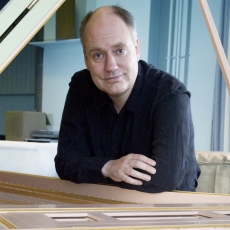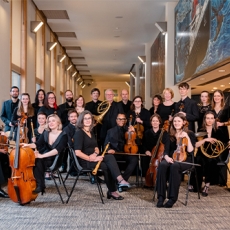Dunedin Consort - J.S. Bach: Magnificat - AllMusic
Given the considerable number of recordings that have tried to place Renaissance compositions within the context for which they were written, it is odd that the same has so rarely been done for Bach. After all, most of Bach's output consists of Gebrauchsmusik, music written for daily use. This release by Scotland's historical-instrument Dunedin Consort and its leader John Butt shows the possibilities of this approach. Included is a possible reconstruction of the Christmas Day service at the St. Nicholas Church in Leipzig in 1723, the first year Bach arrived in the city in whose employ he would spend the rest of his life. He deployed his Magnificat, composed six months earlier, and you hear what would have been heard in 1723, the rarely performed original version, in E flat major (murder on natural brasses), with four hymns inserted between the usual movements, a typical Leipzig practice at Christmas. These are in a mixture of German and Latin, and indeed the entire program provides insight into how Bach, and his audiences, might have regarded the relationship between the new Protestant church music and the grand polyphonic, largely Catholic past. It's rare to hear a motet by Giovanni Gabrieli on a program with Bach, but a collection of late Renaissance music by one Erhard Bodenschatz was apparently in wide use in Lutheran churches at the time, and it's fascinating to think of how the grandeur of Gabrieli's eight-part Hodie Christus natus est might have affected Bach's own conceptions. The Christmas-themed Cantata No. 63, Christen ätzet diesen Tag, BWV 63, is also of great interest when examined closely as to why Bach might have chosen the specific imagery he did. Butt gives you such an examination, and he also gets big-boned performances, with limpid, slightly rough solos, from his assembled forces. The music is splendidly recorded at Greyfriars Kirk in Edinburgh, and the end result is a Bach performance that is original in concept and satisfying in details.


